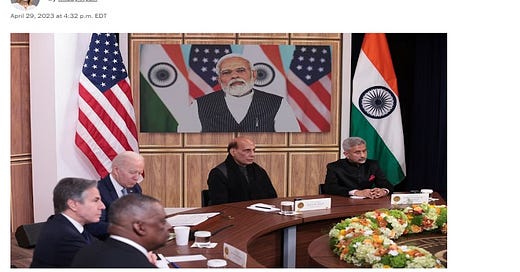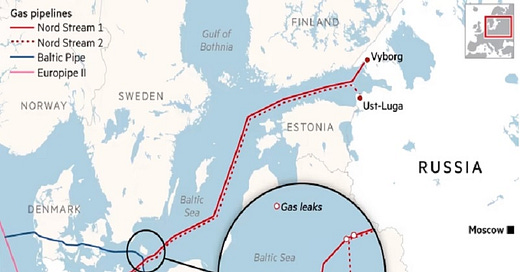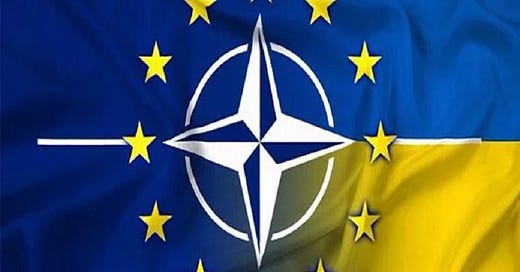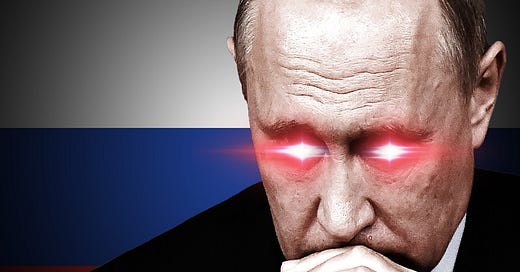
The Washington Post’s latest report about the Pentagon leaks proves that there are very real limits to the US’ influence over the Global South nowadays, which discredits the expectation that it can force every country to take its side against Russia and China. Be that as it may, the strategic situation also isn’t as dire as that outlet fearmongered since the US still has considerable influence in Pakistan and Brazil to balance out its comparatively lesser influence in the Central Asian Republics and complete lack thereof over India.
Contemporary Geopolitics
The Washington Post (WaPo) published their latest report about the Pentagon leaks on Saturday headlined “Key nations sit out U.S. standoff with Russia, China, leaks show”. No serious observer should be surprised, however, that Global South states like Pakistan, India, the Central Asian Republics (CAR), and Brazil are multi-aligning in the New Cold War instead of decisively taking the US’ side. This piece will critique WaPo’s reporting of those countries’ policies and share some concise insight into them too.
Pakistan
Beginning with Pakistan, it was always a pipedream for the US to expect to that this country would ever meaningfully distance itself from China since its future economic prospects are so dependent on trade and investment with the People’s Republic. Its decision to abstain from anti-Russian UNGA Resolutions can be understood in this way since taking the US’ side on this global issue would have prompted suspicions from China of the post-modern coup regime’s grand strategic intentions in the New Cold War.
Despite Pakistan’s official foreign policy not having changed since the US-backed but superficially “democratic” regime change against Imran Khan one year ago, Washington still succeeded in derailing that South Asian state’s geostrategic breakout trajectory. The cascading crises that followed his ouster paralyzed Pakistan precisely at the point when it needed to focus on pioneering its place in the emerging world order amidst the unprecedentedly accelerated global systemic transition to multipolarity.
Considering this, it can be concluded that the US received a major return on its investment into that event since the so-called “Wolfowitz Doctrine” was implemented without any problems. That concept preaches the need for the US to proactively thwart the rise of any country that could potentially pose a threat to its regional interests, which was indisputably accomplished in Pakistan’s case since it might never be able to regain its lost multipolar momentum after losing out over the past historic year.
India
Pakistan’s geostrategic plight stands in stark contrast to India’s rapid rise as a globally significant Great Power throughout the same time. Its pragmatic policy of principled neutrality in the Russian-US dimension of the New Cold War reaped grand strategic dividends by enabling Delhi to perfectly position itself between those two leading players in the global systemic transition. India’s example inspired other Global South states to follow its lead, thus bestowing it unique influence within this group of countries.
The Pentagon leaks’ allegation that National Security Advisor Doval told his Russian counterpart that Delhi won’t go against Moscow at multilateral venues corresponds with the abovementioned policy. Taking the US’ side against Russia at these events, especially the G20 ones that it’s hosting this year, would have catalyzed a chain reaction culminating in India subordinating itself to the US as its largest-ever proxy state and thus abandoning its multi-alignment policy that’s inspired the entire Global South.
Although WaPo presented this policy in a skeptical way vis-à-vis the US’ interests, it’s also true that India remains very close to the US in spite of its refusal to comply with its zero-sum demands against Russia. Those two have shared interests when it comes to managing China’s rise, but nevertheless, even that important commonality between them doesn’t mean that India is the US’ ally against the People’s Republic nor that it has any interest in integrating its forces with NATO’s like its Quad partners are doing.
The Central Asian Republics
Giving credit where it’s due, the Pentagon leaks were spot-on about the CARs’ strategic calculations in the New Cold War regarding their blatant opportunism. It’s indeed the case that they’re “eager to work with whoever offers the most immediate deliverables, which for now is China”, in order to lessen what their leaderships perceive as their so-called dependence on Russia. These motivations create openings for the US that make Moscow uncomfortable since it fears America’s regional military encroachment.
It was with these concerns in mind that Russian Defense Minister Shoigu told his SCO counterparts in Delhi last week that his country is “increasing the combat readiness of its bases in Kyrgyzstan and Tajikistan amid attempts by the United States and its allies to restore its military presence in Central Asia.” Quite clearly, the Kremlin is aware of the Pentagon’s regional plots and wants to proactively thwart them, including those unconventional ones regarding the US’ support of various terrorist groups there.
No CAR would ever agree to host the ETIM or ISIS, for instance, but some like CSTO-member Tajikistan and newly Russian-aligned Uzbekistan might be tempted by the US’ creative cooperation proposals to expand their relations with its armed forces. That said, their growing economic ties with China could potentially deter them from doing so if Beijing became just as uncomfortable with this scenario as Moscow presently is due to its deteriorating ties with Washington making it fear US encirclement.
Brazil
The last part of WaPo’s report about the Pentagon leaks that’s worth critiquing concerns Brazilian President Lula’s foreign policy and in particular his so-called “peace club” proposal for mediating the NATO-Russian proxy war in Ukraine. As was earlier analyzed at the time, “Russia’s Reported Approval Of Lula’s Peace Rhetoric Isn’t Surprising” since the optics of him extending partial blame on the West for this conflict – however insincerely he may be doing so – work against the latter’s soft power interests.
Even so, this recently re-elected and now three-time leader of Latin America’s largest country is still politically aligned with the US against Russia in the most geostrategically significant conflict since World War II as proven by his government’s official stance towards that proxy war that was documented here. Lula’s chief foreign policy advisor also confirmed the aforesaid assessment in a lengthy interview, which was followed by his boss declaring that he won’t visit Russia unless it resumes peace talks with Kiev.
These three analyses here, here, and here detail Lula’s grand strategy, which can be simplified as his desire to de-dollarize with China simultaneously with proselytizing “wokeism” across the world through the global influence network that he reportedly proposed creating with the US Democrats during his trip to DC. Relations with Russia are considered expendable if unilateral sacrifices are required to retain his ideological allies’ trust, hence why the US shouldn’t read too deeply into Lula’s superficial peace rhetoric.
Concluding Thoughts
As proven by WaPo’s latest report about the Pentagon leaks, there are very real limits to the US’ influence over the Global South nowadays, which discredits the expectation that it can force every country to take its side against Russia and China. Be that as it may, the strategic situation also isn’t as dire as that outlet fearmongered since the US still has considerable influence in Pakistan and Brazil to balance out its comparatively lesser influence in the CARs and complete lack thereof over India.
















Andrew - Very interesting points on the worlds reactions to the United State's current adminstration's inability to walk and chew gum at the same time.